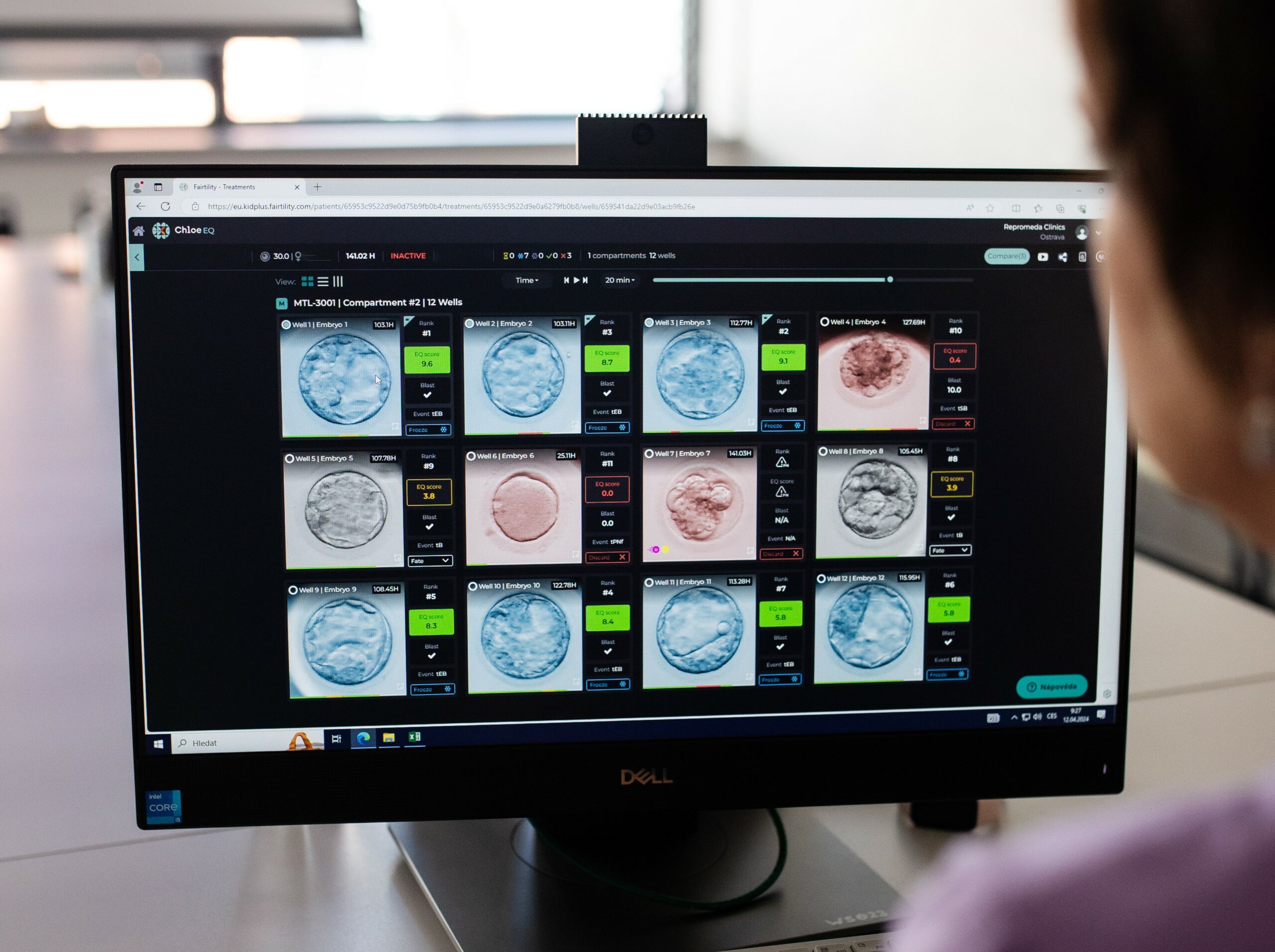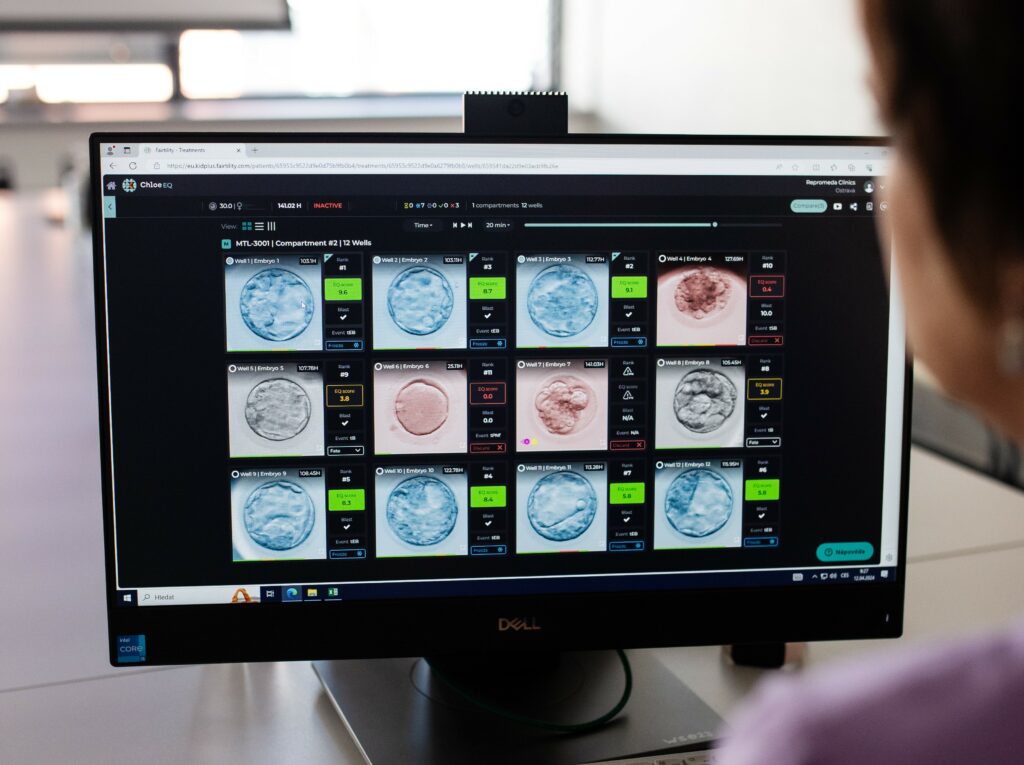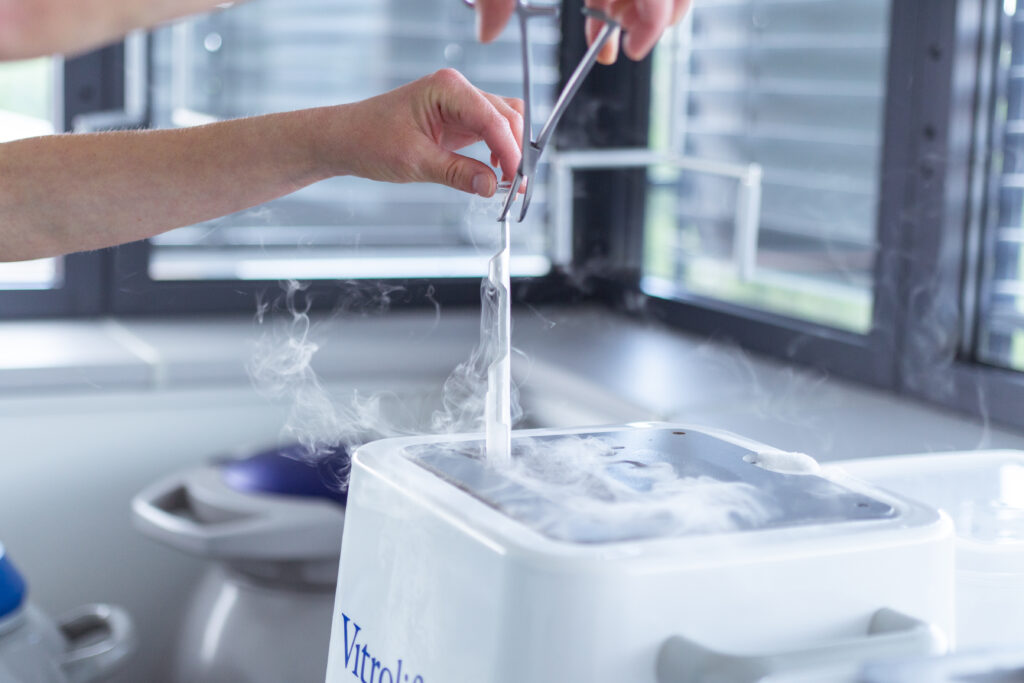The process of assisted reproduction, especially in vitro fertilization (IVF), is a key path to parenthood for many couples. One of the most crucial steps in this treatment is selecting the right embryo for transfer, which requires precise and careful quality assessment. But how do embryologists determine which embryo has the best chances of successful development, and what does this process entail?
What Factors Influence Embryo Quality, and is there any Chance of Improvement?
Many factors affect embryo quality, but the most crucial ones are the quality of the egg and sperm from which the embryo forms. While egg and sperm quality cannot be directly altered in the laboratory, as it depends on the age of the partners, genetic predisposition, and the ovarian response to hormonal stimulation, there are still ways to optimize the process.We can select the best sperm for fertilization and create ideal laboratory conditions for embryo development, which is then carefully monitored throughout the process.
Does Embryo Quality Decline in Women Over 40?
Yes, egg quality naturally declines with age, which also affects embryo quality. After the age of 40, both the chances of natural conception and the likelihood of genetic abnormalities in eggs decrease, leading to lower IVF success rates and an increased risk of pregnancy complications.However, with the right medical approach and careful embryo selection, pregnancy after 40 is not impossible. Even at this age, women can successfully conceive with the support of IVF specialists.
How Is Embryo Quality Determined?
Embryologists assess embryo quality based on three key factors:
- Embryo morphology – The shape, symmetry, and size of the cells.
- Cell division dynamics – Proper division speed indicates the embryo’s ability to continue developing.
- Genetic profile – At Repromeda, we offer genetic testing of embryos to identify potential genetic abnormalities. Only embryos recommended by geneticists are selected for transfer.
By evaluating these aspects, we can determine which embryos have the highest chances of developing successfully in the mother’s body.
How Is Embryo Quality Assessed, and How Does Selection Work?
Embryo assessment is a carefully structured process with several stages. After fertilization, the embryo is observed in the laboratory for five to six days to monitor its development.
Based on these observations, embryologists select one or more embryos with the highest potential for successful implantation. Two laboratories work closely together in our clinic – embryology and genetics. In the embryology laboratory, the egg is fertilized by sperm and the embryo is created. While in the genetics lab, a sample of the embryo is tested to detect possible genetic diseases or other abnormalities that may lead to miscarriage or the birth of an affected fetus By combining these two areas with artificial intelligence, we have created a revolutionary technology, Magenta-AI™ (Magnifier of Genetic Testing for Aneuploidies Plus Artificial Intelligence), which can evaluate vast amounts of data in a short period of time and can objectively assess the quality and viability of embryos. The result of this evaluation is the so-called EQ score, which predicts the success of the embryo in nesting.
Learn more about the revolutionary Magenta-AI™ technology.
Is There a Difference in Quality Between Fresh and Frozen Embryos?
Na naší klinice preferujeme kryoembryotransfer (KET), tedy implantaci mraženého embrya. Kryoembryotransfer bývá úspěšnější než přenos čerstvého embrya. Čerstvé embryo je nutné implantovat striktně 5.-6. den od oplození vajíčka. U kryotransferu můžeme dosáhnout lepší připravenosti děložní sliznice na přijetí embrya a k implantaci vybrat ten nejvhodnější moment.
What Is the Success Rate of IVF When Selecting a High-Quality Embryo?
Choosing a genetically healthy embryo with the right division dynamics significantly increases the chances of IVF success. However, other factors also play a role, such as the woman’s age, overall health, and other medical conditions.
At our clinic 7 out of 10 couples conceive after the first transfer. Success rates after four IVF cycles reach 99 %.
What Happens in a Woman’s Body After Embryo Transfer?
After embryo transfer, several crucial processes occur:
- The embryo attempts to attach to the uterine lining, a step called implantation (nidation).
- If successful, the embryo starts producing hCG hormone, an early sign of pregnancy.
- During this period, a woman may feel fatigue, sensitivity, or mild cramping.
Embryo quality Assesment is a critical step toward a successful IVF treatment. At Repromeda, we use the most advanced technologies to maximize the chances of selecting a healthy embryo with high developmental potential. This cutting-edge process provides new hope and possibilities for everyone struggling with infertility, helping them achieve their dream of parenthood.



